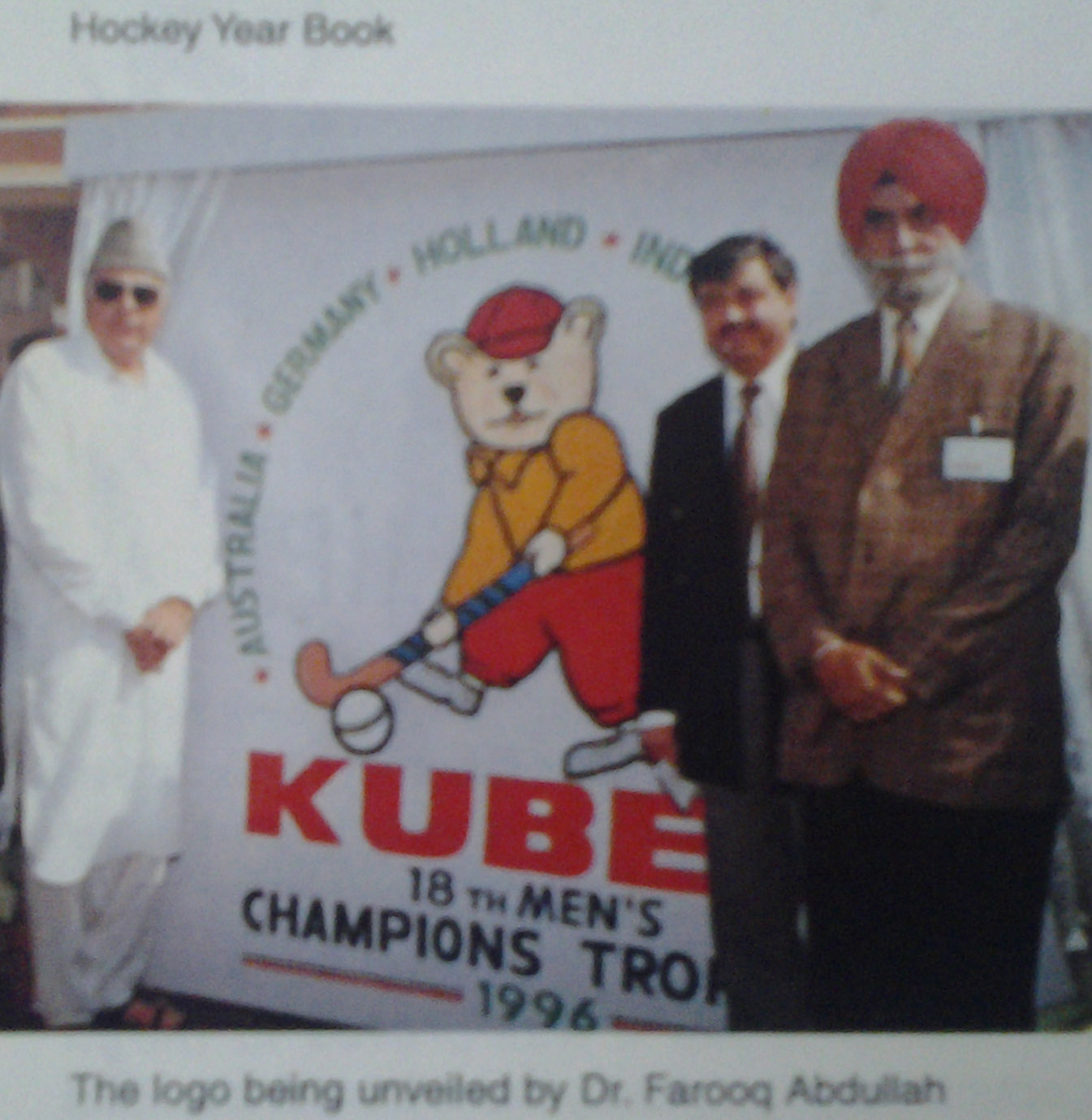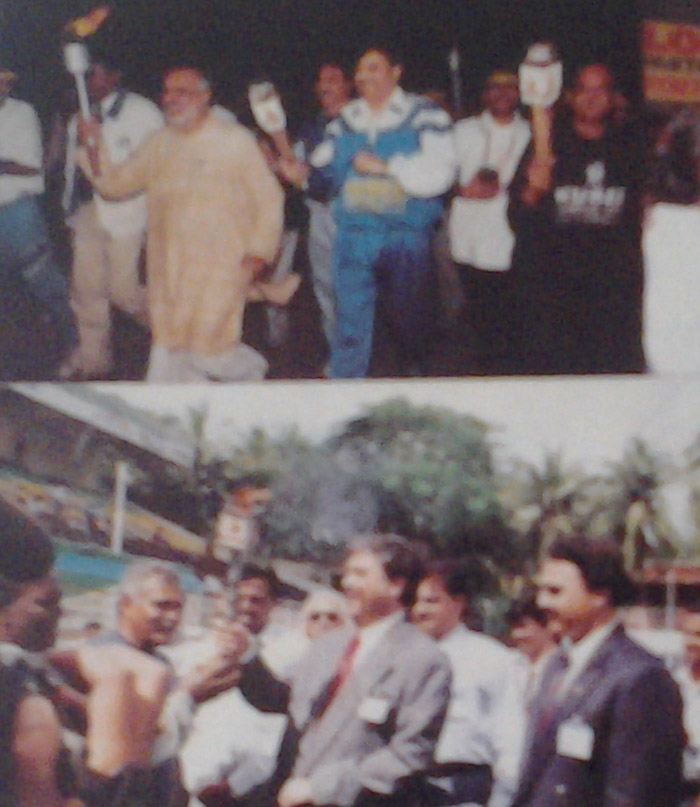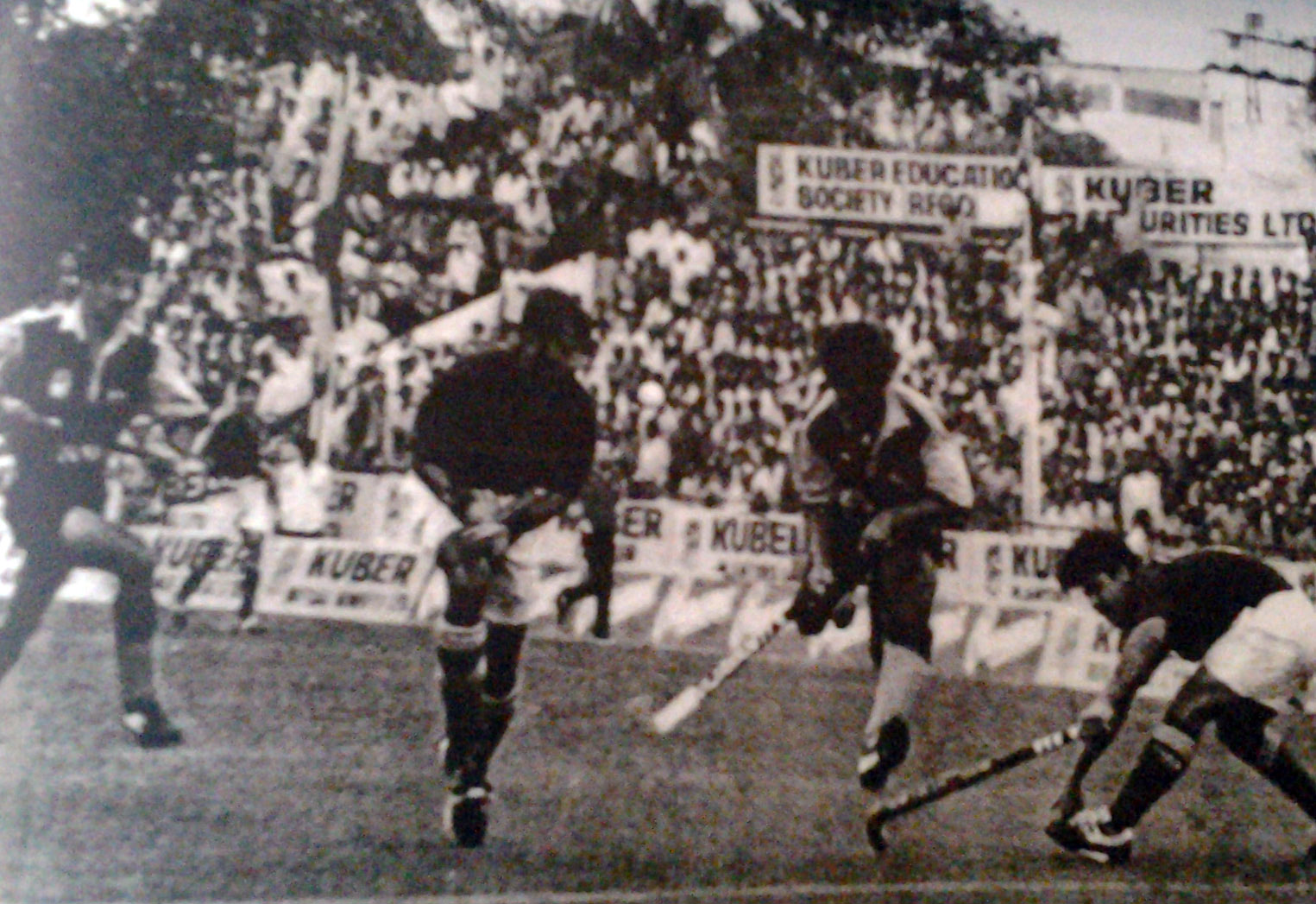CT 2014: When India hosted the first Champions Tro
Share
When India hosted the first Champions Trophy 20 years ago
It is difficult to say which happenings, the game — where India beat Australia and Spain in the pool — the run up — which brought Rs. 3 Cr to parent body — or the series of anti-climaxes in which star Indian striker Dhanraj Pillay was manhandled by the crowd before a section of organizers themselves manhandled their own treasurer, come to mind when one recollects India hosting Champions Trophy for the first time 20 years ago.
Run Up: India and Spain had bid for hosting the 1996 Champions Trophy in the biannual FIH in April 1994. The Indian proposal forward by the IHF headed by Raghunanadan Prasad was accepted after the 1996 Olympic Qualifier had been allotted to the other contender. India tried twice earlier, but lost the race to Malaysia in 1994 and to England next year. While allotting it, the FIH was cautious, if not sceptical, about India’s ability to host its prestigious calendar event. And it was not without many reasons.

Though India has proved to be as good organizer after successful conduct of the Bombay World Cup a few concerns still persisted in the FIH’s outlook of India.
Firstly, the notorious internal bickering. When the World Cup was allotted in 1974, the feud between two then two greats, Jimmy Nagarwallah and Ashwini Kumar, saw to it the event go to the Malaysia. Secondly whether India can create conditions favourable for the live telecast of the matches suitable for a wider European watchers. In other words, stadium with floodglight facility and generation of high quality signals for uplinking. As the FIH banked heavily on television returns, the concern got precedence over the rest.
Once India won the bid, selection of host city hogged the limelight, though it did not develop to an undesirable extent. Gursewak Singh, then Secretary General of IHF, did create a ripple. He stood for Delhi as the venue, the very city that figured in the bidding document. Admittedly, Tamil Nadu Hockey Association, which resumed functioning after a protracted battle for supremacy running into three years, spearheaded by two SBI officials, Jothikumaran and Munir Sait, too claimed. Within three months after the allotment, Prasad and Gursewak group lost the IHF election to KPS Gill group. With Shere-ePunjab Gill handpicking Jothikumaran, then secretary of the TNHA, for the Secretary General of IHF, things went in favour of Madras.
In the PAP lines head quarters in Jalandhar during the 3rd Federation Cup, journalists especially from Delhi grilled Gill in a press meet. Why Champions Trophy to Madras? Gill retorted: “Why not to Madras?”. When it was pointed out that Delhi has two synthetic turf stadiums, while Madras has none, the new IFH chief settled the issue in his inimitable style. He said, “Punjab State has three stadia with turf, and it should come to it, not Delhi”.
At that point of time, Madras had no single hockey ground, not to speak of synthetic one. A multi purpose College ground held hockey’s nerves. The traditional hockey ground at the Major Radhakrishnan compound, Egmore, was dug for the last one year or more without any progress.
The things came in for a sweet run around when the State opted for hosting the 5th SAF Games at Madras. Within eight months, a shabby structure was replaced with a magnificent stadium complex at a whopping cost of Rs. 10 Cr, truly a big spend.
Meanwhile, the mega project of the Hockey Association of England to build its National stadium got delayed and thus the CT 1995 went to Berlin. Surprisingly, but as it happens always, a group of officials including Olympian P. Krishnamurthy, TNHA president, HS Kharbanda, V Kuppusamy, P. Sunder of Chess Fame went all the way to Berlin to study the organisational aspects of holding CT!
True, the IHF did not spend for it — their employers bore the bills — but it was a waste of public money, simply because the IFH Secretary Jothikumaran, also the Organizing Secretary of the Madras CT, was already holidaying in Berlin.
In between, election to the state assembly f TN saw change of guard. The construction of stadium did not progress even a bit. Every bureaucrat kept on assuring, mere assurances. Worried FIH deputed Adrian Peters, a TD on its role, for an on the spot study. Peter was at Madras during the SAF games as well and he knew many things first hand. He submitted his report in the first week of October 1996, upon which just two months before the scheduled commencement, the FIH confirmed venue Chennai.
However, two sore points persisted: Non-installation of flood lights and lack of practice pitch. Alan Pasco International (API), the television company that held the telecast right on behalf of the FIH helped. API perhaps was happy due to some other reasons. Over the smooth way it was allowed uplinking facilities by Government of India contrary to what it did to Cricket World Cup held that year.

It was in fact Doordarshan that acted as a saviour, enabling telecast and thus confirmation of the CT. Helped by its Deputy Director General, RS Rawat, DD assured production of high quality signals, uplinking facility to API besides beaming Live all 18 matches in India. This meant DD will pay IHF rs.90 lac at the rate of Rs.5 lac per match. It was a huge gain for IHF.
Then came the question of title sponsor. During Kuber Cup in Meerut, chief guest KPS Gill met Pridyuman Kumar Sharma, Chairman of Kuber group, and the title sponsor was negotiated. The company struck a sole sponsorship deal of 2.1 Cr, largest ever in the annals of hockey. The agreement was signed on October 27, 1996.
The logo appu with a hockey stick and ball, names of participating is countries encircled it, designed by the brain behind Kuber’s publicity Ajit Edwin was released open theatre in the historic national stadium New Delhi by Dr. Farooq Abdullah, then chief minister of J&K. In his brief speech, pointing towards Abdullah, Sharma said: “The two heroes of India saved our nation in the past, now their turn to save hockey”.
Nationwide torch rallies: Kuber organized grand rallies in the month long run up to the Chennai CT. IT was the likes of Ajit Pal Singh, Ashok Kumar, Zafar Iqbal, MK Kaushik, and others who flagged off the rally in Delhi, while it was left Olympians Krishnamurthy and V. Baskaran and Munir Sair to do the same in Chennai. In a fitting finale, thrice Olympian VJ Peter entered the MRK Stadium holding aloft the torch in the last leg of the long drawn out nation wide rallies. With so many stars in the attendnece, the rallies were big hit at these metros. Between Meerut and Madras rallies, Kuber also sponsored India’s first ever veteran team. The team led by Ajit Pal Singh visited Malaysia, and was given a ceremonious send off in a glittering function held at the Le Merridien, New Delhi. Truly, the build up of Madras CT was a memorable affair.
No timely Kit: In the CT, where Crores of rupees were spent, the same age old problem cropped up. The Indian players got their kit, just one jersey before the start of the tournament that too without the title sponsor name. With the Dutch sporting brand new Robobank on their jerseys, Germy with trademark OPEL, India played as if they did not have sponsor. Many Indian players housed at Ambassador Pallava hotel, had to rush to the nearby Lee shop to get some sportswear. India was the only team to sport old gear, the one Iodex gave on the eve of the Atlanta Olympics.
India played six matches, first and last to Germany, and finished fourth, the sequence is as follows.
Vs Germany: Dhanraj Pillay struck off a pass from Md. Riaz. Germany equalized through its fifth penalty corner, with Michael Bjorn bouncing on to the rebound. Substitute Reinelt Sascha, a school boy, who had just a cap to his credit, punched the inner from top of the circle, wrong footing Harpreet Singh. Germany 2 India 1
Vs Spain: Gavin Ferreira struck once and Dhanraj Pillay twice to defeat the Atlanta Olympic finalist 3-0. Midfielder Rahul Singh and defender Pargat Singh shone greatly.
Vs The Netherlands: The Dutch took the lead via its sixth penalty corner. India staged a remarkable comeback a minute before the hooter. Gavin Ferreira equalized off Dhanraj Pillay. Goalie Ashish Ballal was the hero in the draw.
Vs Australia: After Jason Duff took the lead in the sixth minute, Ramandeep Singh posted two stroke goals and then Gavin Ferreira one. Australia 1 India 3.
Vs Pakistan: It was a crucial match for both, as the winner will reach the final. Md. Ali Khan, Danish Kaleem, and Kamran Ashraf scored for Pak while Anil Aldrin and Pargat Singh for India. Pakistan 3 India 2.
Vs Germany: It was the bronze medal match, India went down tamely 0-5. Christopher Beechman posted a fluent hattrick through PCs.
Anti –Climax: Sponsors made the stadium look festive. Despite torrential rains spectators filled the stands Unlike other editions prediction of match results became difficult, with both Spain , the Atlanta Olympic giant killer and Australia a big name in the globe, not standing up to their image The upset results mad the 18th edition interesting and suspenseful, finalist were spotted on the last day of the pool matches. Host India, too kept up its chance upto the last match till it lost a crucial tie to Pakistan in a well-fought match. Otherwise also, every one of its contests were eventful. In the first match against Germany, award of a penalty corner goal by Spanish umpire Santiago Deo created ripples A run away three nil win over Spain in the et outing raised the hopes The third match was remembered more for the same umpire’s 38th minute temporary suspension of Md. Riaz than any on the field of play With another easy but historically significant success over Australia the stage was et for the most expected India-Pak clash. True, India lost – thanks to wasting 14 penalty corners, but the match was a spectators delight with both teams exhibiting excellence in ball control, speed and body feints. None therefore complained about India’s defeat.
Dhanraj Pillay Manhandled: On the last day, the same India which fought every contest the way it should, faltered. Visibly, there was no enthusiasm among the players and their game lacked the will to win despite the fact that a bronze medal, was at stake. Some of the goals the defence, especially by Ballal, it in would hot have happened I even in a strong school teams. Naturally, the attitude drew flak from the crowd, vociferous action for which heckled the Indian players. Unable to bear the brunt, star striker Dhanraj Pillay entered the gallery and engaged them, and in the process, got manhandled. The situation became so tense that the security had directed Indian to team to rush back to the hotel. No warm down exercise, no press briefing. For missing the mandatory press meet, coach V. Baskaran had sent a letter of regret through press secretary R. Eswar.
It was not the only bad finish tour. Organizers headed by IHF Secretary Jothi Kumaran ended the last day with more sordid episode. The dormant tussle between the treasurer and secretary came out openly and former was humiliated publically, chased from car to car, and the end was man handled. All in public view, at the main entrance of the stadium. For the organizers who specially conducted a four nation twenty days before to gain experience to conduct this cup, the clash turned out to be not only an anti-climax but also distasteful.
Note: Much more info available in Kuber Hockey Year Book 1998 which this writer authored and published



